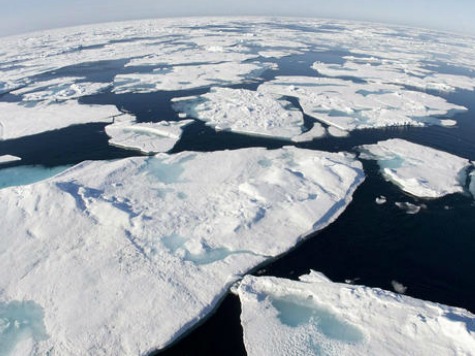France is urging the European Union to seize influence on the Arctic Council, the organisation that brings together the eight nations with sovereign territory in the resource-rich Arctic region.
However, Russia, which along with the United States and Canada dominates the council, is unlikely to tolerate any attempt by France or the EU to extend their bureaucratic reach over joint projects by the eight.
Earlier this month the French Senate reviewed a report outlining the stakes for France if it can gain influence in the Arctic, and indicating how France can spearhead an EU effort to gain control inside the Arctic Circle.
France’s timing could hardly be worse. The EU’s activities in Ukraine have soured relations with Russia, and the subsequent sanctions and threats to Russian gas and oil exports to Western Europe have made Russia think again that it would do well to sell its energy wealth from inside the Arctic to China instead of to the EU countries.
France nevertheless remains determined to urge the EU to push its imperial boundaries right into the Arctic with the dubious claim that “five of the eight permanent members [of the Arctic Council] are European countries.”
The claim is a startling break from the chronic insistence by France and other euro-zealot nations that “Europe” means the EU. In fact the five to which the French refer are not all members of the EU, just Finland and Sweden are, with Denmark having a seat only because Greenland, tucked in next to the Canadian Arctic Archipelago, is an autonomous country within the Danish kingdom.
Yet for purposes of making demands for EU control of the Arctic, France, with some arrogance, is claiming Norway as “a European country,” although its people have twice rejected membership of the EU in referenda.
Norway is, however, a member of the four-nation European Economic Area, which includes Iceland – and with more arrogance, for the purposes of demanding a seat on the Arctic Council, France is now claiming Iceland is “European,” though Brussels treats the determined independence and rejection of the EU by Iceland with contempt.
André Gattolin, a senator from the Green Party, told Euractiv France: “The Arctic contains a lot of natural resources, and there is the possibility of exploiting them.” He and other senators believe they could spearhead the EU’s strategy to increase influence in the Arctic through scientific research: “We are in talks with major actors of the region. Each has their own interests. All countries are also involved in research, but to different extents.”
The French ministry is trying to integrate Arctic issues into the agenda for the 2015 UN Climate Change Conference in Paris. In 2009, the French government appointed Michel Rocard, a former Socialist prime minister, as ambassador for all international negotiations regarding the Arctic and the Antarctic, according to Euractiv France.
The Arctic Council was founded in 1996 as “a high-level intergovernmental forum to provide a means for promoting cooperation, coordination and interaction among the Arctic States.”
The members are Canada, Denmark (including Greenland and the Faroe Islands), Finland, Iceland, Norway, Russia, Sweden and the United States. Six international organisations representing Arctic indigenous peoples have permanent participant status.

COMMENTS
Please let us know if you're having issues with commenting.